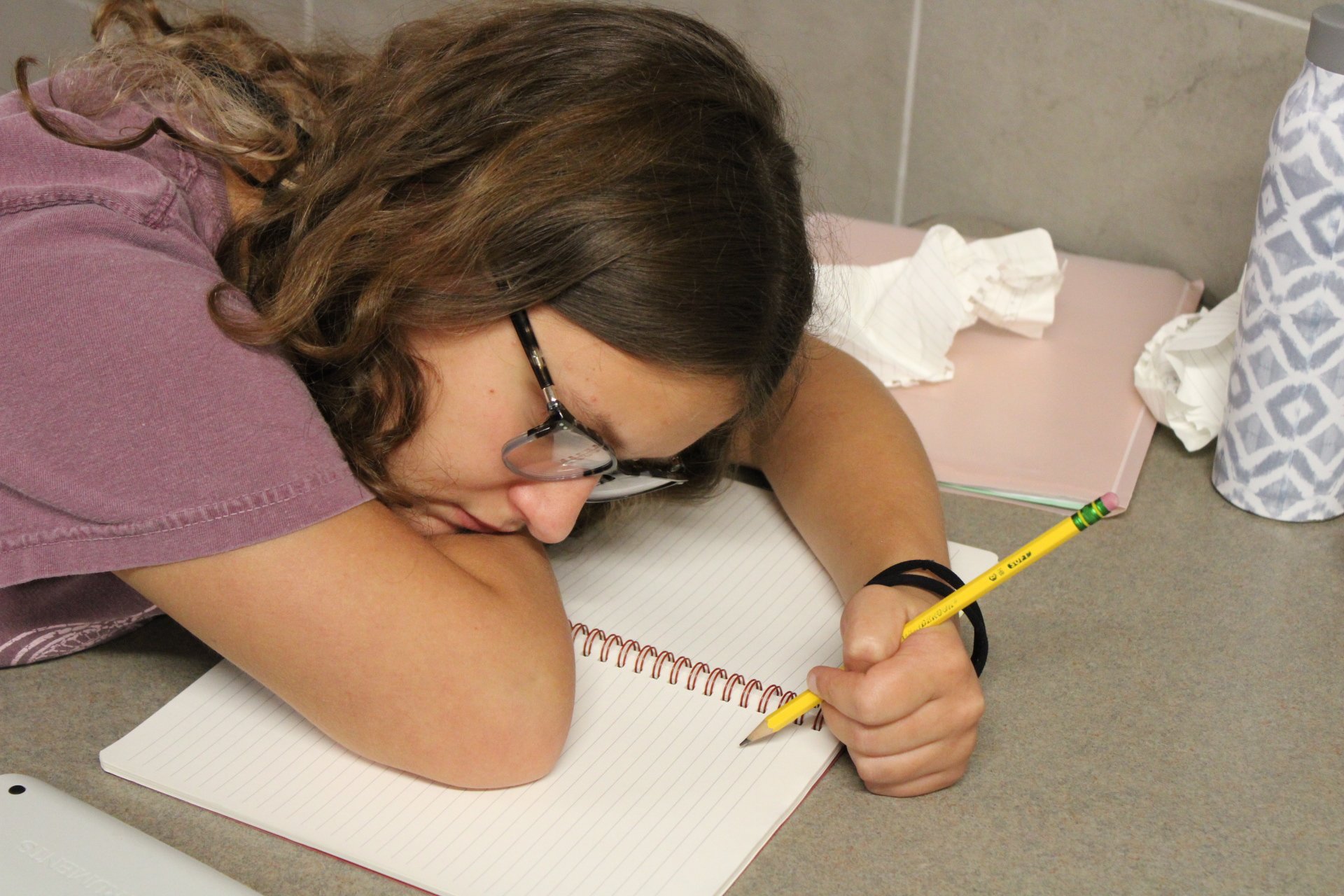Empowering Students: The Impact of Oklahoma’s House Bill On 2768 Dysgraphia
By: Olivia Cannon
Dysgraphia is one of the most undiagnosed learning disabilities, but House Bill (HB) 2768 is working to change that, by transforming Oklahoma's education system to empower students with learning disabilities. HB 2768, introduced in January 2021 and passed in May 2022 represents a significant milestone in Oklahoma's education system. This legislation took effect September 1st, 2023, and aims to better support students with learning disabilities, specifically those with dysgraphia.
“Dysgraphia is someone's inability to transfer things from what they see, onto paper,” said Eric Vanzee, a vice principal at Jenks High School. “It has to do with the process of seeing the information and then recreating that information for themselves.”
“For me, it's a little bit sad at times that we have to wait for the legislation to say hey you need to treat these people kindly and you need to be helping them,” said Vanzee, explaining how necessary legislation is.
HB 2768's primary focus is on expanding Oklahoma's dyslexia handbook. It now includes information about dysgraphia, a condition often overshadowed by its better-known cousin, dyslexia. This expansion represents a crucial step in acknowledging and addressing the unique challenges faced by students with dysgraphia.
"The law was implemented to bring greater understanding of dysgraphia to teachers and staff, and supports for working with students that demonstrate characteristics of dysgraphia,” said Michelle Hight, the Director of Student Learning and Literacy at Jenks, “ we have added information about identifying characteristics of dysgraphia and strategies for teachers to use in supporting students with these characteristics,” Hight said.
HB 2768 also mandates training for Oklahoma's teachers to help them identify the signs of dysgraphia in students, by equipping educators with the knowledge and skills needed to recognize dysgraphia in their students and help better support those students in the classroom.
“The earlier we can identify students the earlier they can get help and start working to manage that, and learn what they need so they can accommodate for themselves and work on accommodations that will help them be successful,” said Vanzee.
Jenks is dedicated to helping students find proper accommodations that will help them succeed in their education, so they feel comfortable, and confident in their ability in the classroom.
“One of our beliefs at Jenks High School is that we're here for every Trojan every day,” Vanzee said, “That's really making sure that all of our students have access to the great education we have here, so they can meet there potential, and be their best, so overall the legislation is going to help one more group of individuals not feel as isolated or disconnected from education.”
We want no student left behind, that is why it's so important for teachers to be able to identify a student with dysgraphia. Being diagnosed with dysgraphia won't only help a student's grades and performance at school it will also help their self-esteem.
“ If they are not diagnosed, oftentimes they think that it’s something that's just wrong with them so they won't ask for help they just think maybe they’re dumb or, they just don't get it or, they're the only one,” Vanzee said.
While Jenks can't diagnose students with dysgraphia they can help parents get their student tested to get a 504 or IEP. Now because of HB 2768, it will be easier for teachers to identify if a student has dysgraphia, so they can start working on accommodations that will help not only the student's grades and performance in class but also their self-esteem. Jenks is working hard, with people like Ms.Hight, and Mr. Vanzee who are dedicated to helping every student get the proper education they deserve. If you are a student or have a student you suspect might be suffering from dysgraphia, Mr.Vanzee would like to encourage you to talk to a counselor about getting you or your child tested so they can be properly supported in the classroom.
